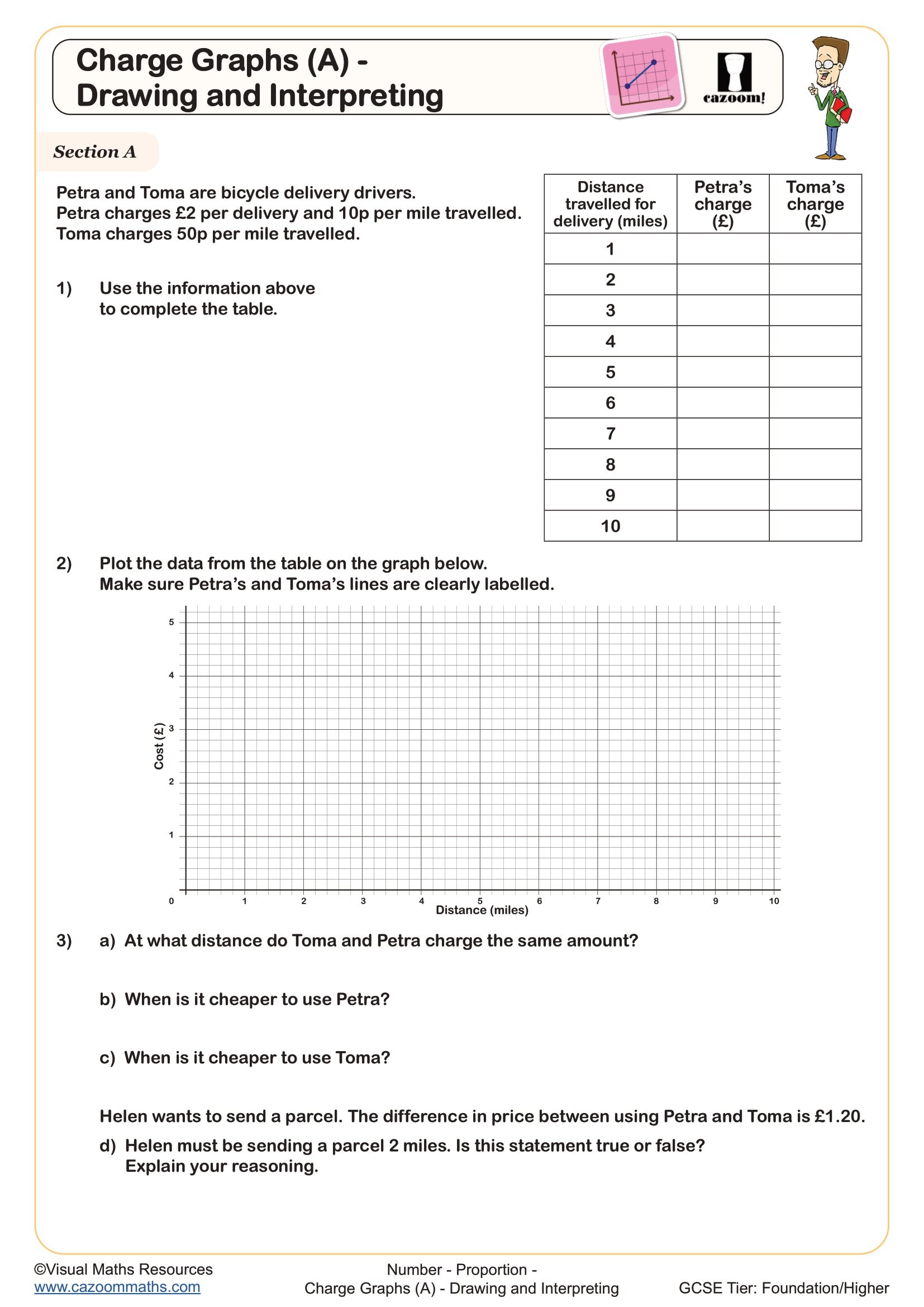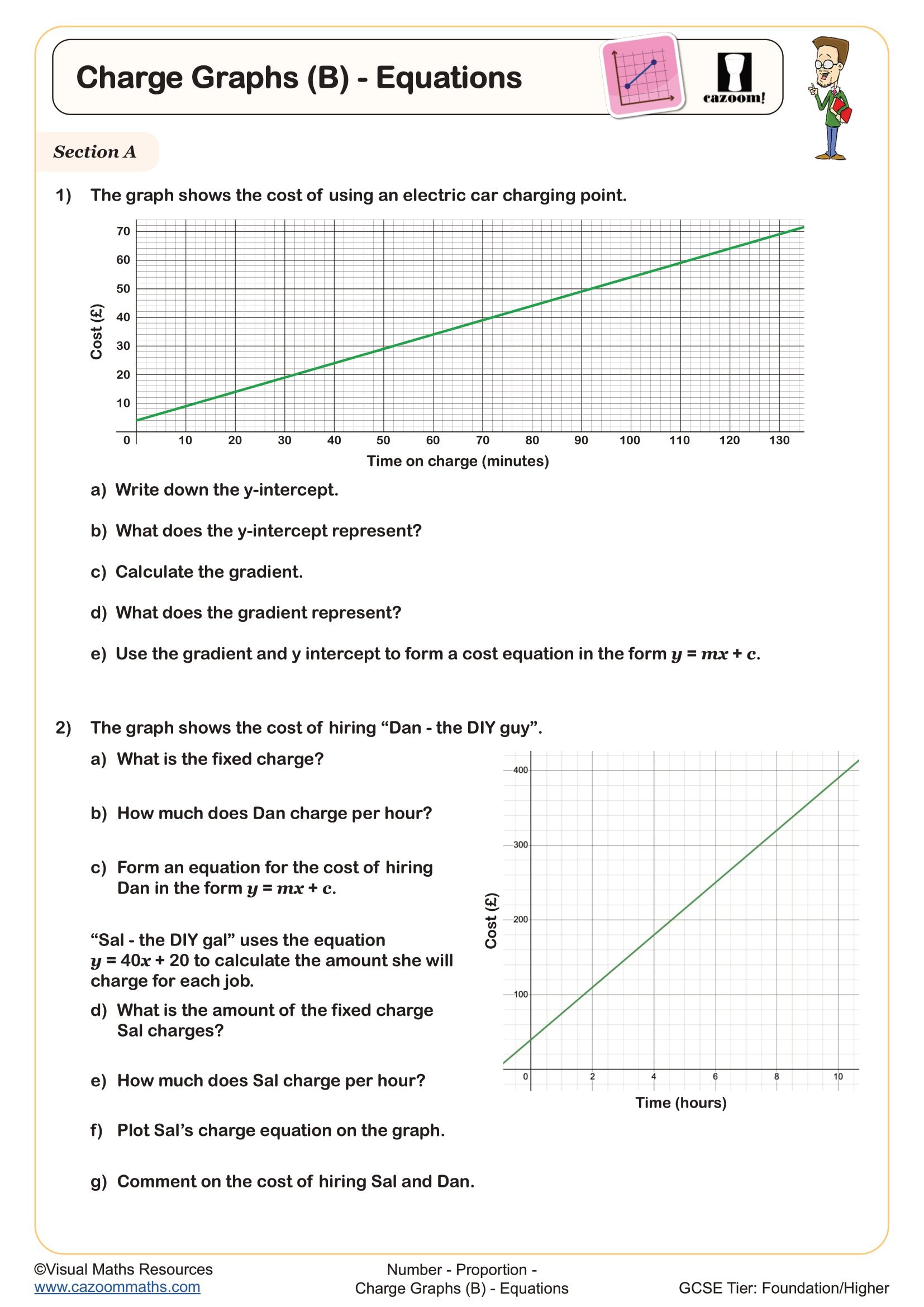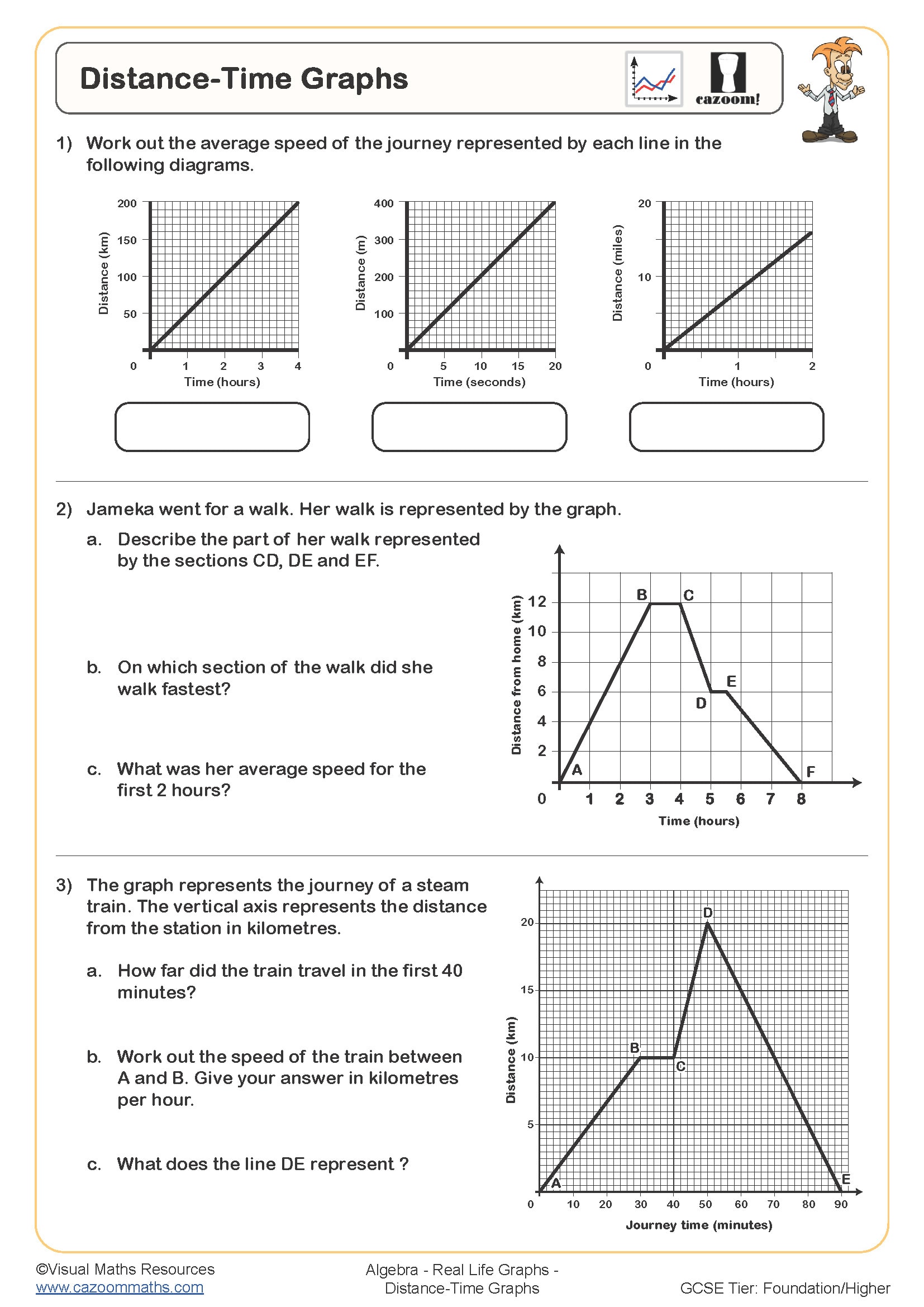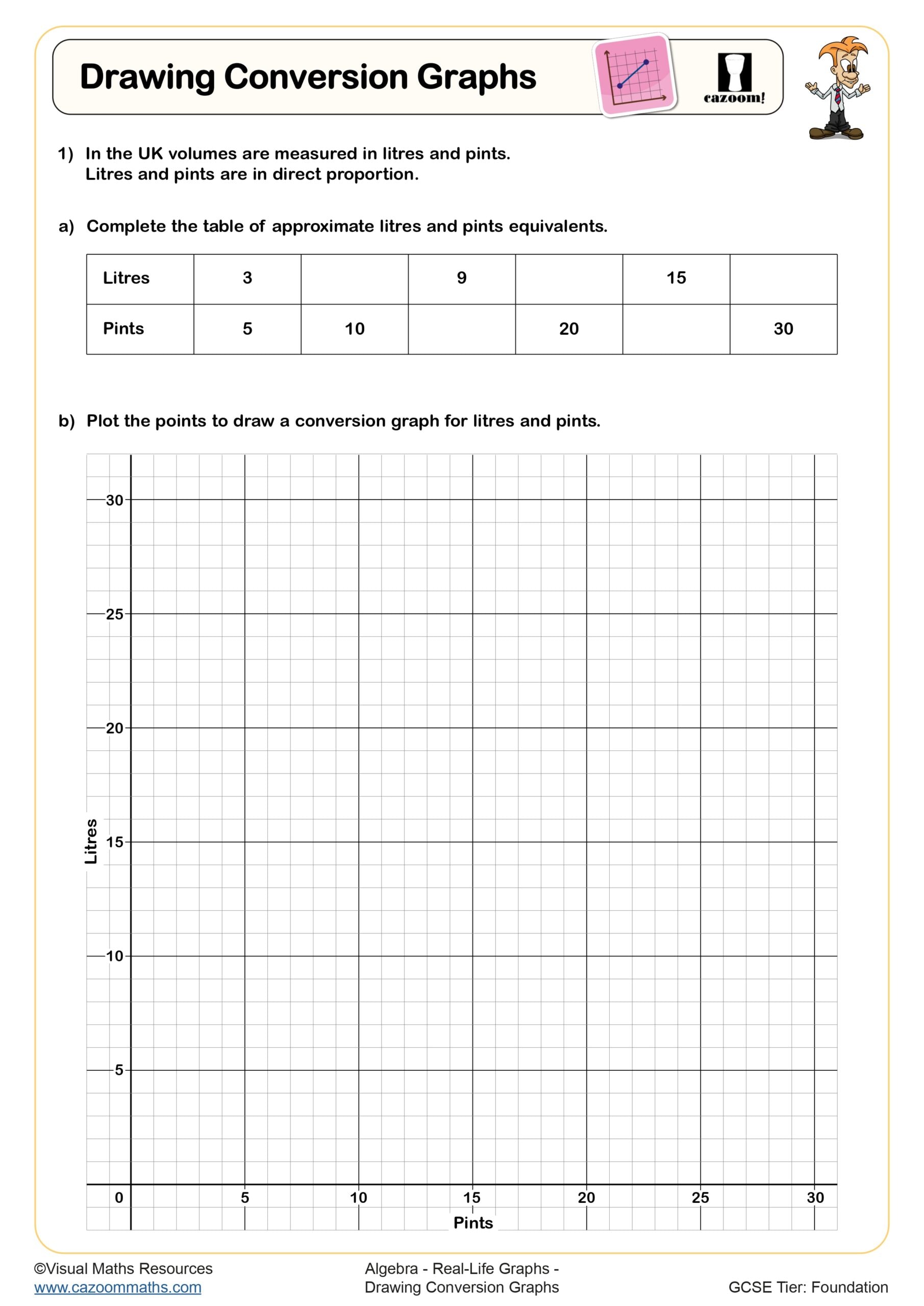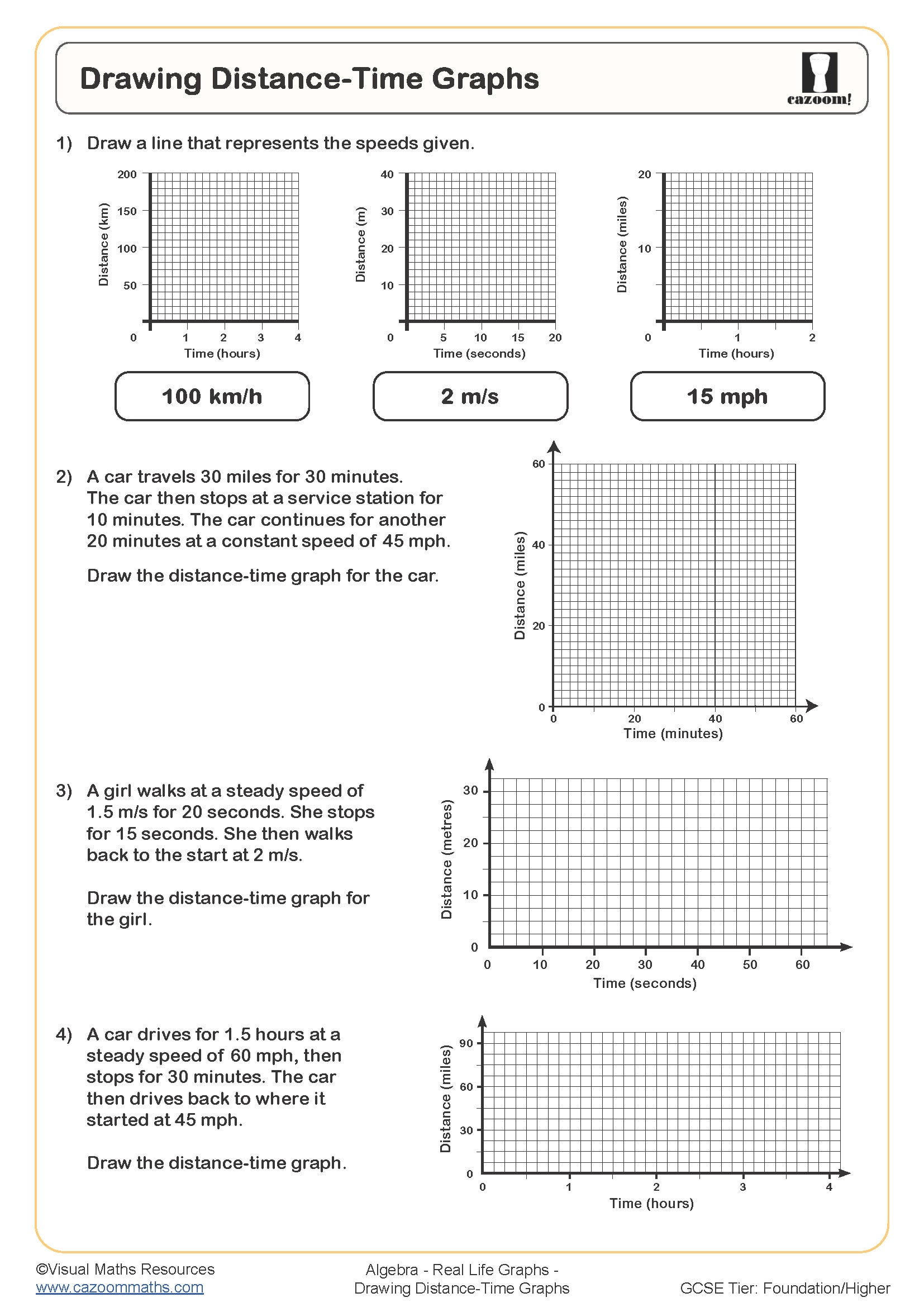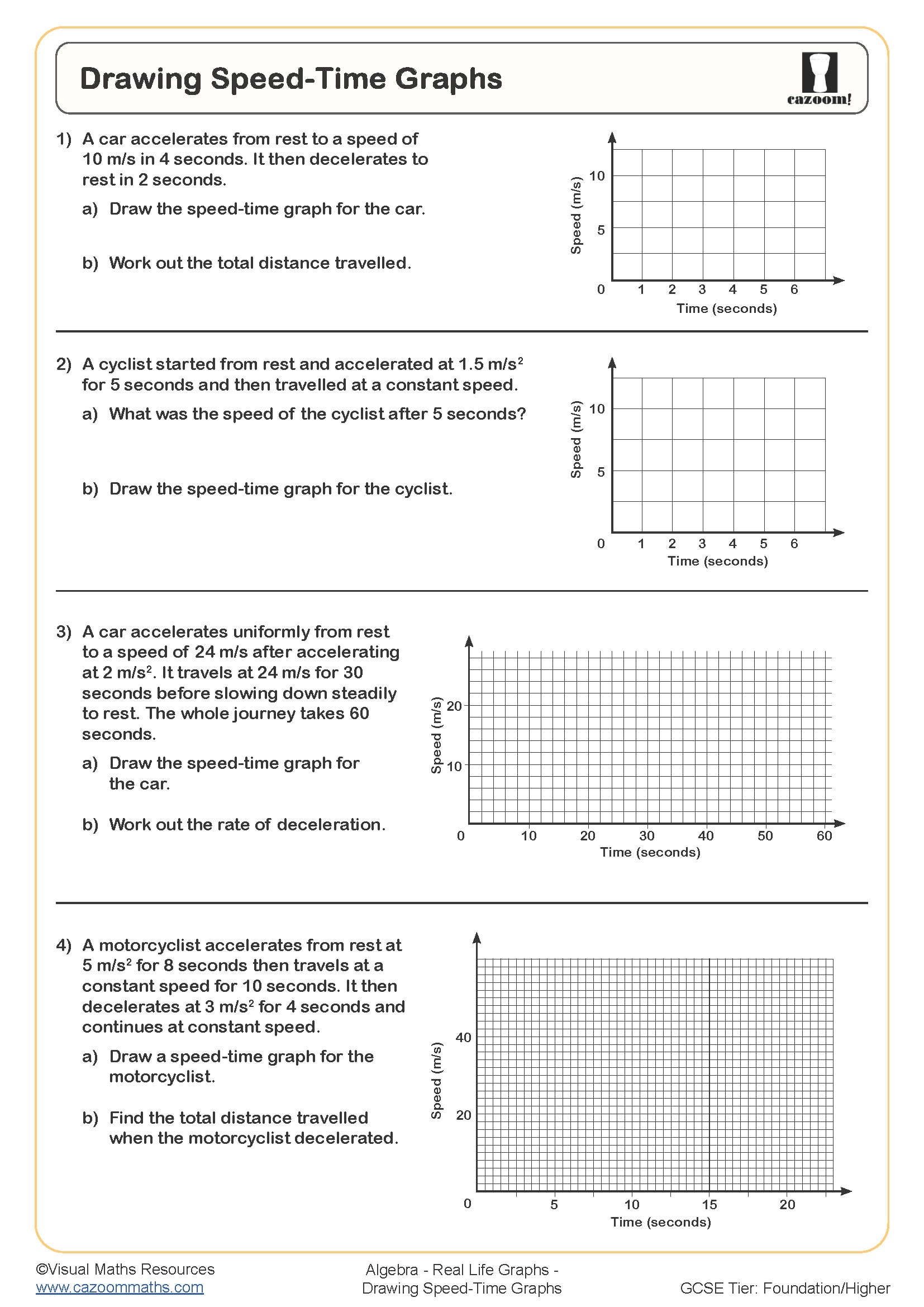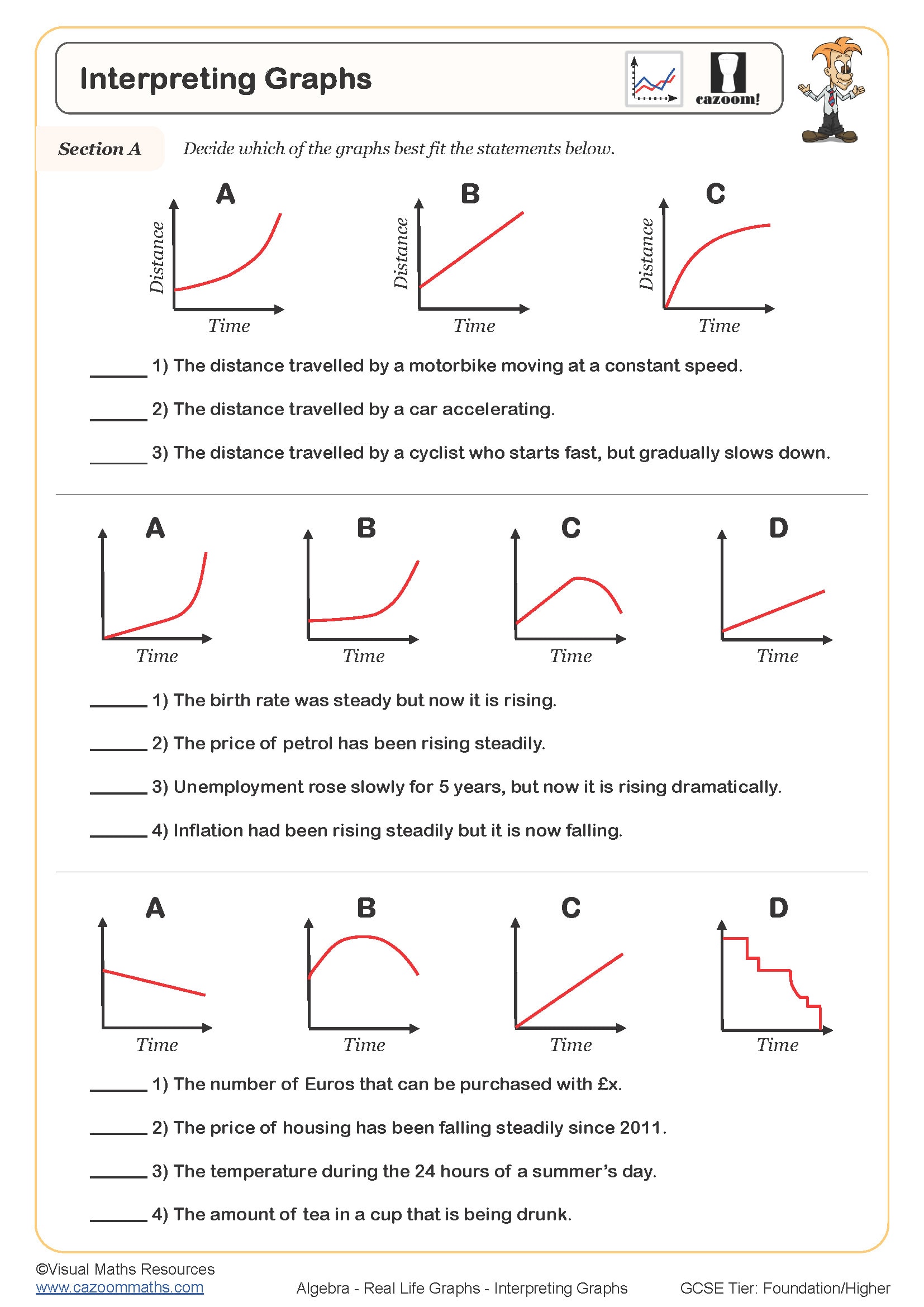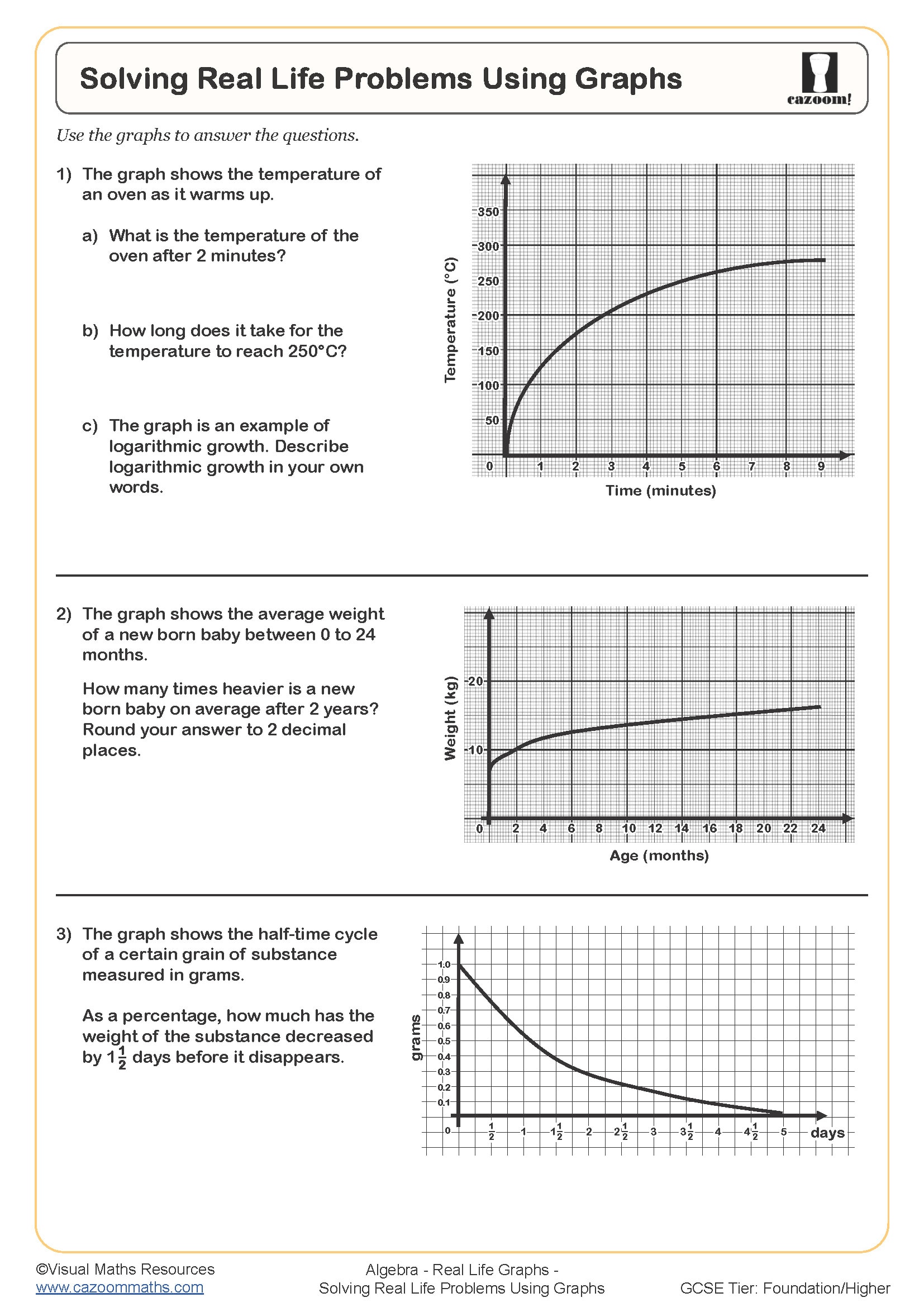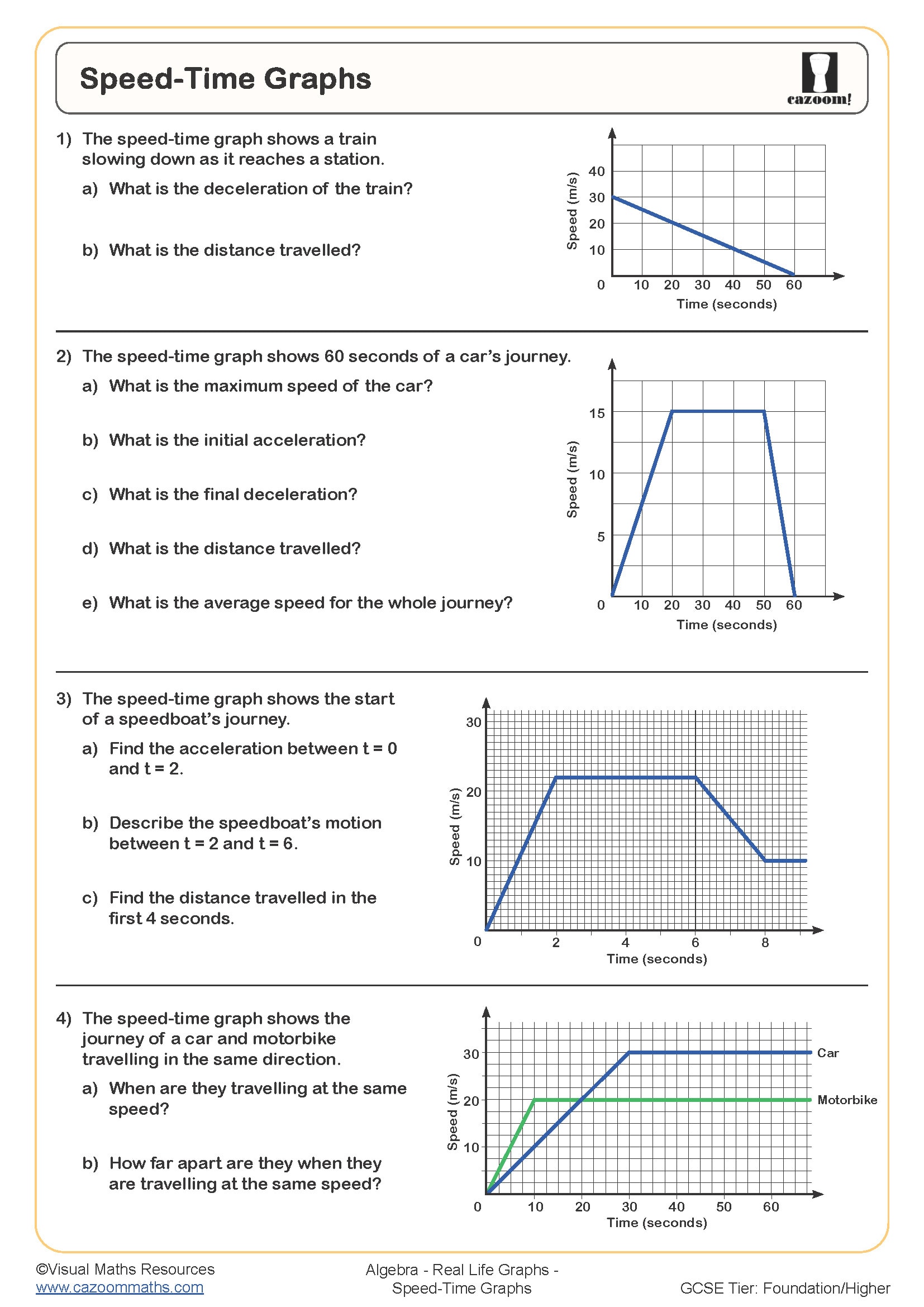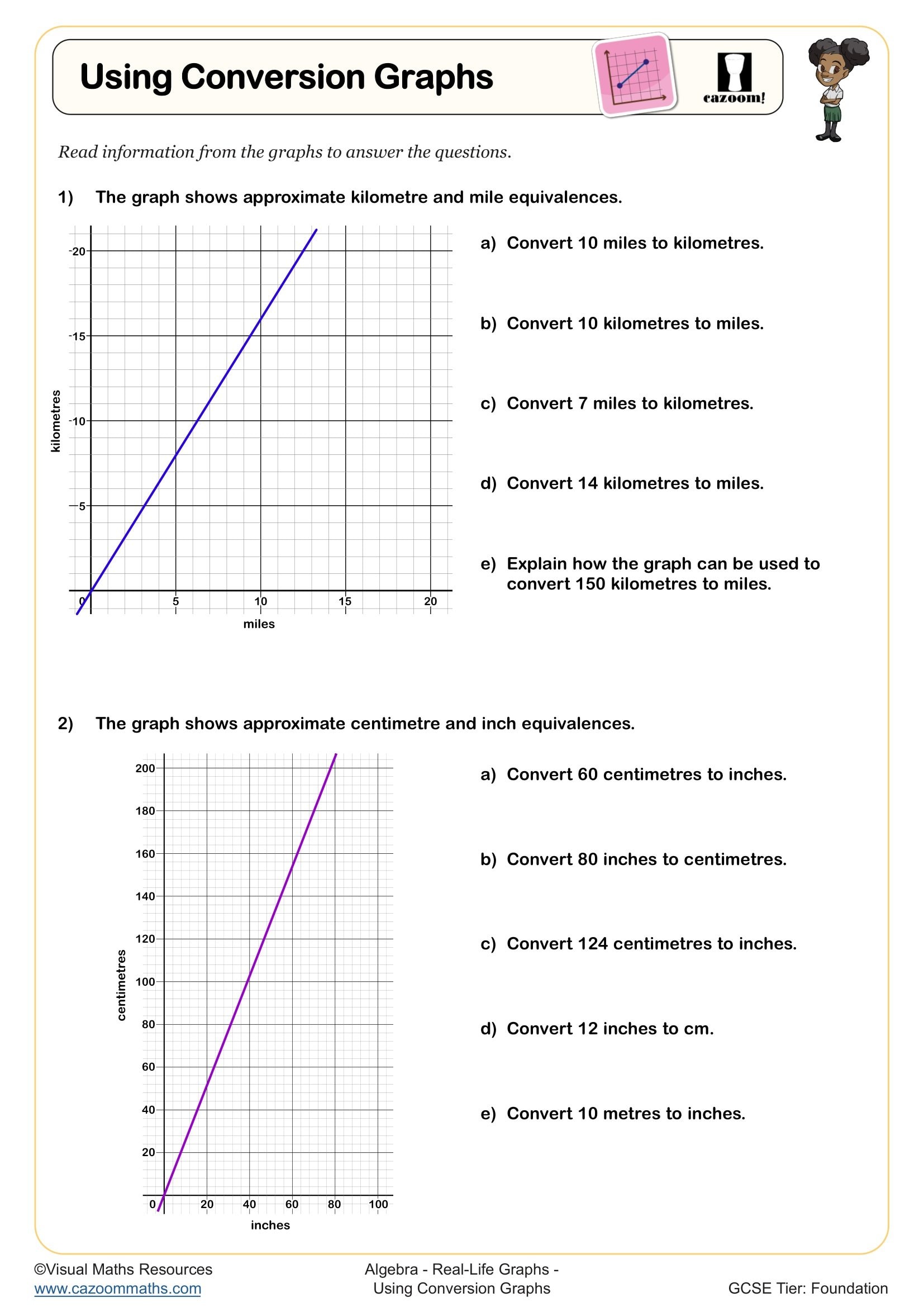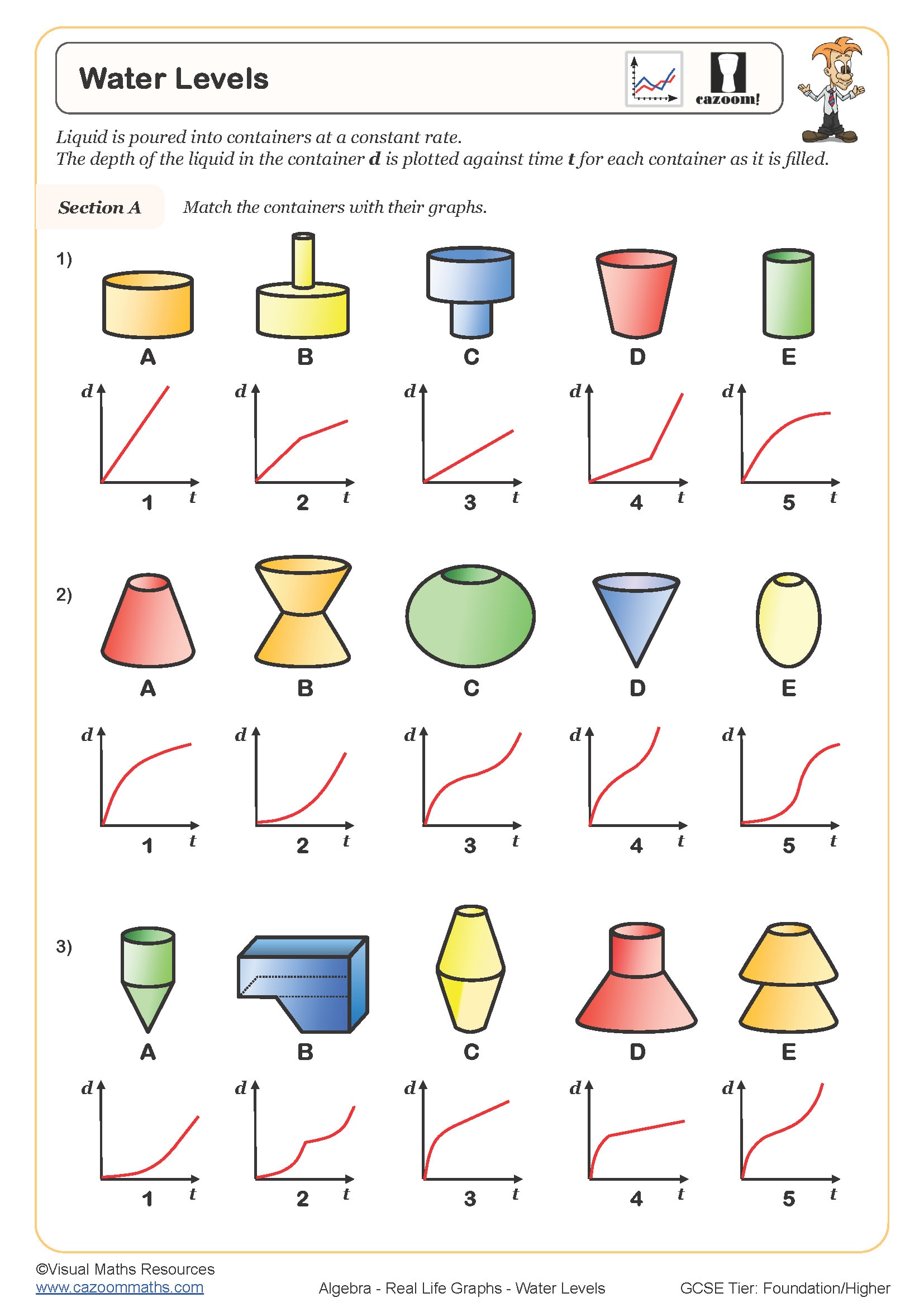Year 9 Real Life Graphs Worksheets
All worksheets are created by the team of experienced teachers at Cazoom Maths.
Why Are Our Printable Year 9 Real-Life Graphs Worksheets Essential for KS3 Maths?
The ability to solve real-world graphs bridges the gap between basic algebra, which your young pupils had learned back in KS2, and abstract algebra and real-world problem-solving, marking a significant turning point in KS3. In Year 9, your pupils will learn a wide variety of topics, for example, the concepts of rate of change, which are the foundation of science, economics, and many other related fields. As your secondary school students progress from basic coordinate work to analysing complex relationships through graph connections related to scientific experiments and trip planning, students are taught to view algebra as a must-have tool.
Specific learning benefits include:
• Your students will be able to relate algebra to real-world situations
• They will understand and build relationships between time, distance, and speed.
• They will be able to enhance their ability to use proportional reasoning
• KS3 students will be able to interpret information from various sources
• They will be able to connect equations to illustrations
Core Maths Areas Strengthened by Cazoom Maths Year 9 Algebra Resources
Cazoom Maths worksheets cover a wide variety of real-life graphs related to algebra concepts. These algebra resources include clear and easy-to-understand instructions to help your young pupils understand and relate their learning to real-life situations. The worksheets in this collection include:
• Distance Time Graphs — interpreting journeys and calculating speeds from graphical information
• Drawing Conversion Graphs — constructing graphs to convert between different units and currencies
• Drawing Distance Time Graphs — plotting journey information and representing motion graphically
• Interpreting Graphs — extracting meaning from various contextual graphs and charts
• Using Conversion Graphs — applying graphical methods to solve practical conversion problems
• Water Levels — analysing container filling rates and depth changes over time
• Charge Graphs (A) - Drawing and Interpreting — understanding cost structures through graphical representation
• Charge Graphs (B) - Equations — linking graphical information to algebraic expressions and formulae
• Drawing Speed Time Graphs — representing acceleration and deceleration in motion contexts
• Solving real-life problems using graphs — applying multiple graph skills to complex scenarios
• Speed Time Graphs — calculating distance travelled and understanding velocity changes
Why Schools Choose Year 9 Graph Activities for Easy Learning
Our algebra activities address the undeniable needs found in every Year 9 classroom by providing multiple introductions to each topic, while maintaining high expectations for all learners. Students who struggle with new algebraic equations can succeed when accessible content and challenging extension questions are strategically combined. On the other hand, advanced learners can stay engaged by answering advanced-level questions, which will help them grasp the material better. Your secondary school students will be able to concentrate on a huge range of mathematical reasoning instead of deciphering complex instructions or cluttered presentations when there is a straightforward visual layout to ease cognitive load. Additionally, the separate answer sheets that accompany each of these resources will facilitate a hassle-free checking process. All of our resources are ideal for covering lessons, homework assignments, or intervention sessions where consistent quality is essential, as the structured progression through each worksheet reflects effective classroom teaching.
Why Graphing Skills Matter in Everyday Life for KS3 Students
Your students in Year 9 who master the skills of reading and drawing graphs are better equipped to navigate a world that is becoming more and more data-driven. For example-
• Students plan their travel routes using timetables and distance calculations.
• In order to identify the best option, students create cost analysis graphs to evaluate mobile phone contracts.
• When conducting experiments in chemistry and physics classes, students must comprehend scientific data.
• As part of their coursework, business studies students must analyse economic trends.
• Students can better understand their exercise performance by analysing fitness tracking data.
• Expenditure charts are necessary for efficient control of household budget management.
• People use charts to assess their energy use in order to protect the environment.
• People must comprehend climate change data and weather forecasts.
